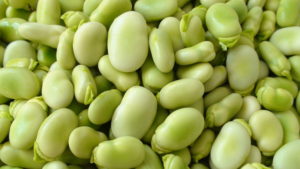
The Surprising Connections Between Disease and Longevity

The Surprising Connections Between Disease and Longevity
 There is much folklore surrounding the infamous fava beans. The most famous is that Pythagora, the ancient scholar, warned all of his students to avoid them at all costs. The million dollar question that people have been trying to figure out ever since is why? Did Pythagoras actually say this, and if so, was it a metaphor or to be taken literally? In this chapter Dr. Moalem argues that Pythagoras’s warning was probably meant to be taken literally. Favism is the most common enzyme deficiency in the world today and is also a heritable disease. If people who have favism, and thus lack the G6PD enzyme, eat fava beans it can result in death due to sudden anemia. The G6PD enzyme is thought to be responsible for maintaining the integrity of the cell, specifically in red blood cells. Free radicals on the other hand have unpaired electrons that are looking to pair with already pair molecules, thus threatening the stability of the cell. Therefore, one major role of the G6PD enzyme is removing free radicals. The reason people with favism have an adverse reaction to fava beans is because the beans contain compounds that produce free radicals which leads to the lysing of red blood cells when the G6PD enzyme is not present. One notable observation is that the places where favism is most common coincidentally overlaps with the places where fava beans are harvested and eaten. So, what is the evolutionary advantage of this seemingly detrimental disease? Dr. Moalem believes that lacking the G6PD enzyme results in red blood cells that are less hospitable to malaria. This would mean that favism is selected for because it provides resistance to malaria, which explains why it is predominantly found in tropical climates where mosquitoes are common. You may be wondering why these same populations would then produce and eat the majority of the world’s fava beans? Dr Moalem has an explanation for this as well. He says that eating fava beans, which increases free radicals, also makes regular red blood cells less hospitable to malaria, acting as a natural preventative care measure.
There is much folklore surrounding the infamous fava beans. The most famous is that Pythagora, the ancient scholar, warned all of his students to avoid them at all costs. The million dollar question that people have been trying to figure out ever since is why? Did Pythagoras actually say this, and if so, was it a metaphor or to be taken literally? In this chapter Dr. Moalem argues that Pythagoras’s warning was probably meant to be taken literally. Favism is the most common enzyme deficiency in the world today and is also a heritable disease. If people who have favism, and thus lack the G6PD enzyme, eat fava beans it can result in death due to sudden anemia. The G6PD enzyme is thought to be responsible for maintaining the integrity of the cell, specifically in red blood cells. Free radicals on the other hand have unpaired electrons that are looking to pair with already pair molecules, thus threatening the stability of the cell. Therefore, one major role of the G6PD enzyme is removing free radicals. The reason people with favism have an adverse reaction to fava beans is because the beans contain compounds that produce free radicals which leads to the lysing of red blood cells when the G6PD enzyme is not present. One notable observation is that the places where favism is most common coincidentally overlaps with the places where fava beans are harvested and eaten. So, what is the evolutionary advantage of this seemingly detrimental disease? Dr. Moalem believes that lacking the G6PD enzyme results in red blood cells that are less hospitable to malaria. This would mean that favism is selected for because it provides resistance to malaria, which explains why it is predominantly found in tropical climates where mosquitoes are common. You may be wondering why these same populations would then produce and eat the majority of the world’s fava beans? Dr Moalem has an explanation for this as well. He says that eating fava beans, which increases free radicals, also makes regular red blood cells less hospitable to malaria, acting as a natural preventative care measure.